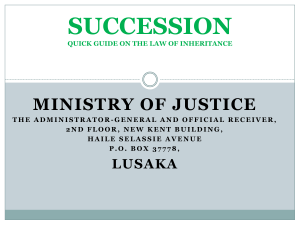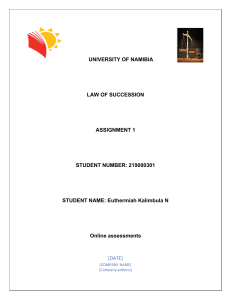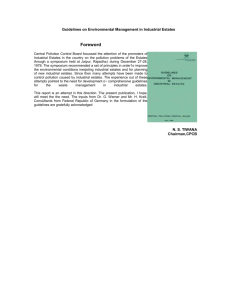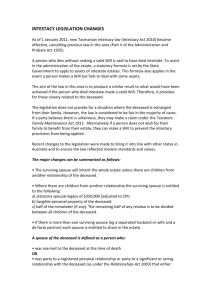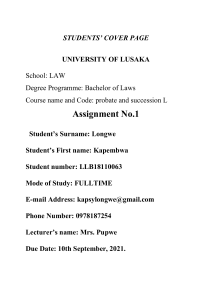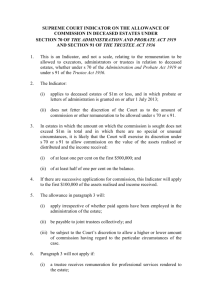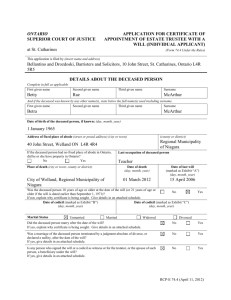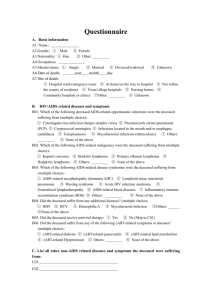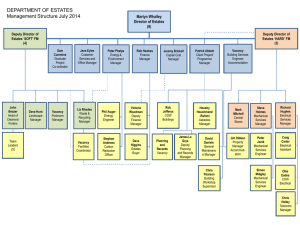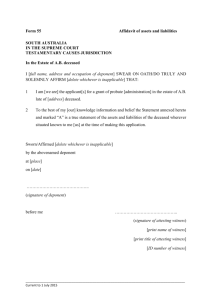Statutory Laws and the Realization of Women`s Property Rights in
advertisement
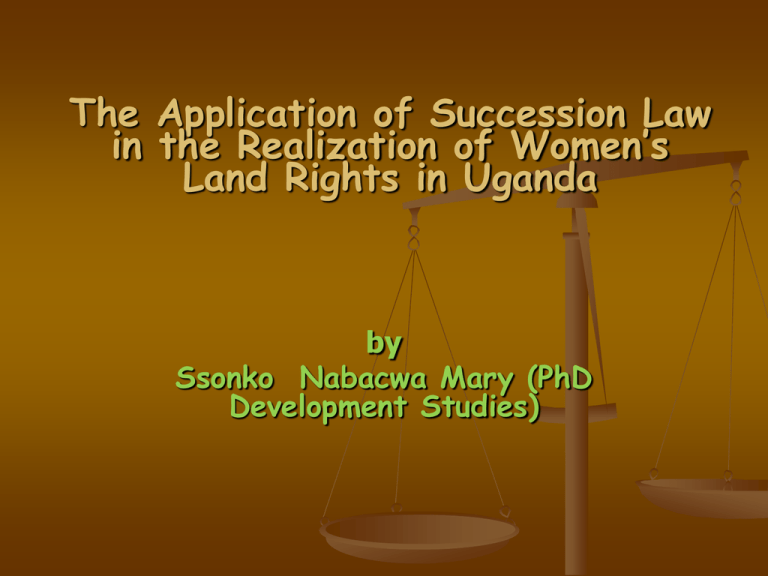
The Application of Succession Law in the Realization of Women’s Land Rights in Uganda by Ssonko Nabacwa Mary (PhD Development Studies) Outline of the presentation Background Objectives of the study The Office of the AG Establishment Mandates Procedures Approach to the study Findings Conclusion Background Inheritance is one of the main means of land acquisition in Uganda Statutory laws are perceived to protect women’s inheritance and property rights Cap 162 of the laws of Uganda relates to succession Sections of the succession Act that were deemed unfair to women were repealed in 2007 Cap 157 of the laws of Uganda provides for the administration of estates of deceased persons by the AGO Background Cont…. Three years ago, a study was done to establish whether women’s inheritance rights particularly in relation to land were protected by one of the institutions mandated to do so– the OAG This office was enacted in 1933, it constitutes one of the departments in the Ministry of Justice This law has never been reviewed Objectives of the study To evaluate the effectiveness of statutory laws and practices of the AG office in relation to women’s property rights Ascertaining the volume and number of received and concluded cases by the office of the Administrator General during the period 1986 – 2005 Objectives Cont… Establishing proportions of immovable property particularly land awarded to women compared to their male counterparts by AG office Document the practices of this office in the execution of its duties Mandates of the AGO It is closely intertwined with the Estates Trusts and Succession Laws (Caps 154-165), particularly the SA (Cap 162) as well as Marriage and Divorce Laws The office facilitates the management of a deceased person’s immovable (land, & buildings) and movable properties Procedures The AG Office assumes power to administer a deceased’s’ estate under 6 major circumstances: when the deceased has left a will appointing the office to administer his/her estate when the deceased makes a will and omits to appoint an executor when the persons named as executors in the will die before the testator or when they renounce that responsibility Procedures Cont… When the letters of administration have not been obtained within 2 months from the death of the testator or, When the deceased died without a will If/when a creditor brings his/ her claim to the office. Other responsibilities of the AG include keeping and accounting for every estate under his/her jurisdiction Approach to the study 10% of cases reported to the AGO between 1986 and 2005 were selected by simple random sampling. A structured data extraction form was used to extract details of cases The Data was analyzed using the SPSS Package to Frequency tables and for divergent or similar gender patterns Content analysis was used to relate to existing theories in the analysis of gender disparities Study Limitations Scanty and mmissing information information on the files Poor records storage and retrieval Indeterminate cases Findings A total of 609 cases were extracted clients utilized different arbitration levels including: Local councils (40%) Family/Clan leaders (20%), NGOs (Federation of Women Lawyers (FIDA), Legal Aid) District offices (CAO) before and in-between reporting the case and visits to the AG’s office as well as the High Court Findings cont… Regional Distribution of Cases West 14% East 14% North 9% Cental 63% Findings cont… Out of the 609 deceased 500 (82%) were men aged between 36 and 60 years HIV/AIDS was the leading cause of death for both males and females Only 15% of the 609 were reported to be single at the time of death Findings cont… 23% of the women made wills in comparison to 16% of the men 50% of the beneficiaries could not directly and/or access the estate Only 49 (8%) of the 609 cases were indicated to be conclusively disposed Distribution of land and money of non-willed Estates Only 35 non-willed estates over the period of 20 years were conclusively distributed 63% of distribution involved money while 35% was about land 52% of the males and 48% of the females were apportioned land Patterns of Property distribution % Sibling 5% Other 4% Parent 11% Spause 17% Children 63% Property distribution by category beneficiary in willed Estates 200 180 160 140 120 100 80 60 40 20 0 179 133 144 111 103 Female 81 48 Land Houses Male 66 65 Livestock 48 Personal effects Other Conclusion The AG office plays a positive role in restoring women’s property including land through adhering to the succession law of equal share in non-willed estate The case disposal rate is very low 8% The study helped to create a database for follow-up to document women’s retention of the inherited land Conclusion …. Findings show that contrary to the dominant narrative that women do not inherit land, this study showed that in fact women benefit much more in willed estates



